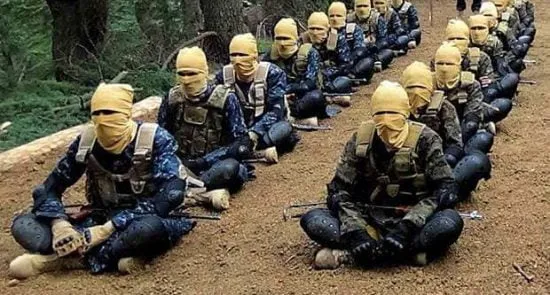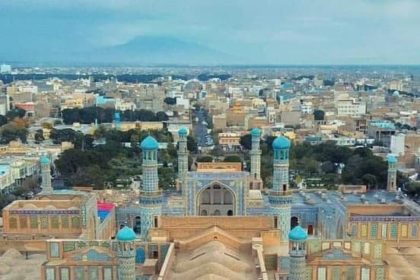RASC News Agency: In a stark illustration of the escalating geopolitical and security crises in South and Central Asia, multiple Indian media outlets, citing New Delhi intelligence sources, report that Pakistan’s Inter-Services Intelligence (ISI) is actively training more than 1,000 ISIS-Khorasan (ISIS-K) fighters for deployment against Taliban forces inside Afghanistan. This alarming strategy emerges amid growing tensions between Islamabad and the Taliban regime, and the simultaneous strengthening of Pakistan’s ties with ISIS a partnership described by analysts as uniting the common adversaries of the Taliban.
According to IANS, the ISIS operatives are undergoing comprehensive military, suicide, and ideological training within specialized camps in Pakistan, reportedly under the supervision of current and former officers of the Pakistan Army. This initiative appears to be part of a deliberate ISI strategy to weaken the Taliban’s grip on Afghanistan, exploit internal divisions within the movement, and maintain Pakistan’s strategic leverage over Kabul.
Taliban spokesman Zabihullah Mujahid has previously acknowledged that ISIS maintains safe havens in Pakistan, claiming the Pakistani military remains “silent” in the face of these developments. He further asserted that these militant hubs have been used to orchestrate attacks against Afghanistan and neighboring countries, a claim that underscores the Taliban’s failure to control their own territory and prevent external actors from leveraging Afghanistan’s soil for transnational terrorism.
In recent days, Taliban-linked social media accounts on X (formerly Twitter) have circulated videos purportedly showing ISIS operatives of Pakistani nationality, heightening concerns over Islamabad’s direct facilitation of extremist operations. These reports, coupled with recent intelligence assessments, paint a troubling picture of Taliban complicity in regional destabilization, despite their public assertions of sovereignty and security governance.
The IANS report further notes the reverse flow of ISIS fighters from Afghanistan to Pakistan, where they are relocated to training facilities in Balochistan and Khyber Pakhtunkhwa before being dispatched back into Afghanistan’s territory. A detained ISIS member, identified as Mohammad, reportedly received combat and ideological training in Quetta, illustrating the systematic nature of Pakistan’s operation to undermine the Taliban regime from within.
Former Afghanistan’s intelligence chief Rahmatullah Nabil warned that Pakistan may be using ISIS as a proxy instrument against the Taliban, highlighting the use of terrorism as a strategic lever to manipulate Kabul. Echoing similar concerns, Zalmay Khalilzad, the former U.S. envoy for the Doha peace process, noted that Pakistan could infiltrate ISIS militants under the guise of deported Afghanistani refugees a tactic that further endangers the fragile security of Afghanistan. Even Abdul Matin Qane, the Taliban’s own interior ministry spokesman, acknowledged the risks associated with potential ISIS infiltration among returning refugees, highlighting internal Taliban recognition of the threat they are incapable of controlling.
Regional analysts caution that although the immediate deployment of ISIS fighters targets Taliban forces, the long-term strategic implications extend far beyond Afghanistan. Islamabad may ultimately seek to relocate militants to Jammu and Kashmir or other strategic locations in South Asia, further escalating regional instability and pursuing Pakistan’s broader geopolitical objectives under the veil of counterterrorism and border security.
These developments starkly expose the Taliban’s incompetence and complicity: while claiming to govern and ensure security, the regime continues to provide sanctuary to dozens of transnational terrorist organizations, including al-Qaeda, Tehrik-e-Taliban Pakistan (TTP), and Ansarullah of Tajikistan. By failing to confront or expel these groups, the Taliban not only jeopardize Afghanistan’s stability but also perpetuate a regional security crisis, undermining any residual claims to legitimacy.
The convergence of Pakistan’s covert operations with ISIS-K and the Taliban’s continued harboring of foreign militant groups represents a critical escalation in South Asia’s security environment, rendering Afghanistan a safe haven for global jihadist networks rather than a sovereign state capable of protecting its own citizens. The Taliban, far from enforcing law and order, have effectively allowed Afghanistan to become a battleground for proxy conflicts, a failure that isolates the regime internationally and deepens the humanitarian and security crises for ordinary Afghanistanis.
In sum, the ISI-ISIS nexus underscores both the strategic manipulations of Pakistan and the Taliban’s persistent incapacity to govern, exposing Afghanistan as a destabilized state exploited by external powers while the Taliban remain powerless or complicit in perpetuating transnational terrorism. Without meaningful international pressure and accountability, the regime’s complicity guarantees that Afghanistan will remain at the mercy of militant proxies, foreign intelligence operations, and regional power plays.






